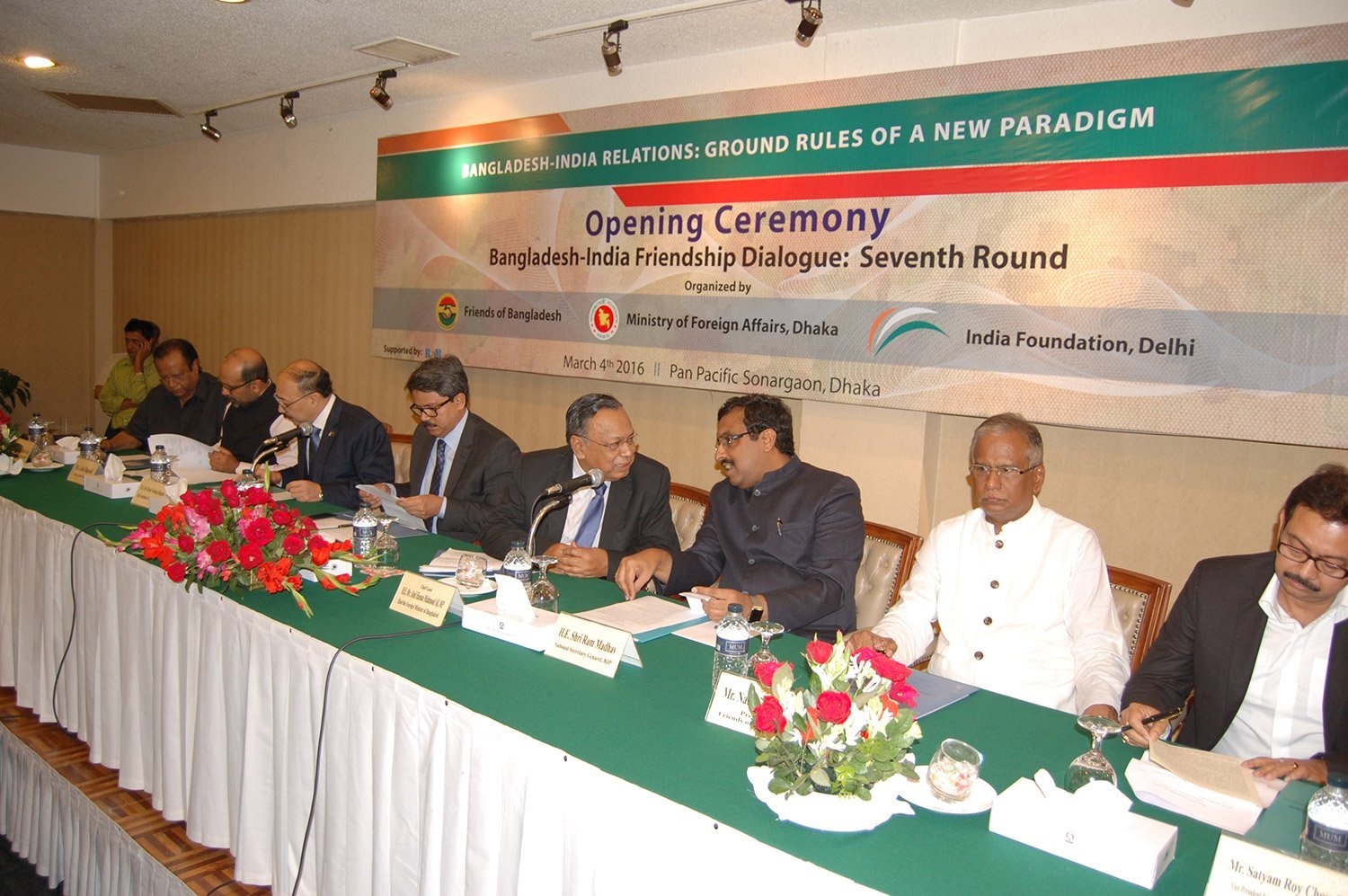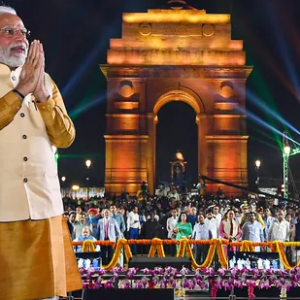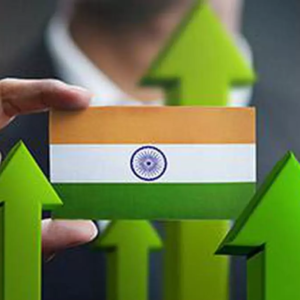The 7th round of the India-Bangladesh Friendship Dialogue titled, “Bangladesh-India Relations: Ground Rules of a new paradigm” was held on the 4th to 5th March, 2016 in Dhaka, jointly organized by the Bangladesh Foundation and India Foundation, Friends of Bangladesh and Ministry of Foreign Affairs, Dhaka and witnessed high levels of participation from the political, media, executive and academic circles of both countries.
Day – 1:
The inaugural session began with the welcome remarks by H.E. Mr. Harsh Vardhan Shringla, High Commissioner of India to Bangladesh and Introductory Remarks by Mr. Satyam Roy Chowdhury, Vice President Friends of Bangladesh (India Chapter). The Dialogue was graced by the presence of the Chief Guest, Mr. Abul Hasan Mahmood Ali, M.P, Hon’ ble Foreign Minister of Bangladesh. The Key Note Speeches were delivered by H.E. Mr. Shahriar Alam, Honorable State Minister for Foreign Affairs, Bangladesh; Shri Ram Madhav, National General Secretary of BJP and Director, India Foundation.
Mr. Shahriar Alam, Hon’ble State Minister for Foreign Affairs, Bangladesh addressed the relationship between Bangladesh-India based on a multitude of commonalities–historical, cultural, linguistic, religious, ethnic and social. He highly appreciated the ratification by India of the long awaited Land Boundary Agreement that has been an epitome of goodwill of the BJP-led government towards Bangladesh. He also highlighted that apart from traditional sectors, new areas of cooperation have also opened up collaboration in nuclear energy, blue economy, maritime affairs, satellite launching just a few to name.
In his Keynote remarks, Shri Ram Madhav, National General Secretary of BJP and Director, India Foundation, mentioned that the relation of India with Bangladesh is not of a big brother but rather as partners; partners in progress, partners in peace, partners in prosperity. He emphasized on both countries’ democratic constitution and praised the Hon’ble PM, Sheikh Hasina for her stand to protect the democratic constitution of Bangladesh. In case of trade issues with India he gave his assurance that no injustice will be done to Bangladesh. He also applauded the Indian high commissioner’s involvement to take the land boundary agreement to a logical conclusion.
In his address, the Chief Guest for the Inaugural Session, Mr. Abul Hasan Mahmud Ali, Hon’ble Minister of Foreign Affairs, Bangladesh spoke about the new prospering dimensions of India-Bangladesh relations. He also mentioned that the foreign policy of both the nations should be the one which promotes secularism; human rights, social justice, and non-violent inter-cultural progress to stop religious intolerance.

 Day- 2:
Day- 2:
The 2nd Day of the event began with the much awaited Special Address by Foreign Secretary of Bangladesh, Mr. Md. Shahidul Haque. In his remarks, he emphasized on particular issues that need to be worked upon to enhance the bilateral relationship between India and Bangladesh. These issues include water, terrorism, cyber security, energy security, oil transportation, power trading, nuclear power and electricity generation.
Session – 1:
Topic: Securing Borders, Securing People
Speakers:
Chair: H.E. Shri MJ Akbar
Keynote Papers: Ms. Sripriya Ranganathan and Major General (Retd.) Abdur Rashid
In his Keynote Paper titled “Radicalization & Terrorism”, Major General (Retd.) Abdur Rashid said, radicalization is a process by which individual or group comes to adopt violent ideology as a legitimate means. Terrorism is the use of violence and intimidation in the pursuit of political aims. He raised his concern about the fact that radicalization leads to terrorism because of poverty, disparity in charity world, absence of rule of law & justice, deficit in democracy, lack of good governance, presence of social inequality and violation of human rights.
In her Keynote Address, Ms. Sripriya Ranganathan, Joint Secretary (Bangladesh & Myanmar), MEA, Government of India, talked about the good state of relationship between Bangladesh & India. She mentioned that ongoing projects like rail-road connectivity, telecom, energy, science & technology, power, culture have lead to a positive momentum, which is extended by political partnership and the coordination among the agencies of both sides.
The Panelists for the session were Capt Alok Bansal, Shri Swapan Dasgupta, Dr. Syed Manzurul Islam, Shri Swapan Dasgupta and Prof. Delwar Hossain. They discussed about the growing Radicalization and the need to develop a comprehensive Deradicalization strategy; the need for maritime boundary agreement; the need for Bangladesh to make an economic and financial relation with India; the problem of illegal currency and the issue of local security.
Session – 2:
Topic: Creating the Access of Prosperity and Growth Leverages
Speakers:
Chair: Mr. Shahriar Alam
Keynote Papers: Shri Shakti Sinha and Dr. Gowher Rizvi
The first Keynote Paper was presented by Shri Shakti Sinha, Director, South Asian Institute for Strategic Affairs, New Delhi. He stated Bangladesh could be the centre of manufacturing industries and that there are a lot of investment opportunities. He also emphasized on the need for a comprehensive water and energy framework in South Asia.
Dr. Gowher Rizvi, Foreign Affairs Adviser to the Prime Minister of Bangladesh expressed that the award of the much talked about Teesta water sharing agreement would make positive development. He stressed that harnessing the Himalayan water resources has a huge potential and remains untapped in the region especially in Nepal and Bhutan. India-Bangladesh relations are currently billed as being ‘at their best’ though there are issues of the water sharing and border management sectors. He also said that the border killings have been reduced drastically now than what it was during the BNP regime.
The panelists included Shri Binod Bawri, Director, India Foundation, Ms. Sripriya Ranganathan, Joint Secretary, Ministry of External Affairs, Dr. Qazi Khaliquzzaman Ahmed, Governing Chairman and Prof. Mustafizur Rahman, CPD Executive Director.
Session – 3:
Topic: Architecture of Connectivity: Resource, Transport and Power
Speakers:
Chair: Shri Shakti Sinha
Keynote Papers: Dr. Tawfiq-e-Elahi Chowdhury and Mrs. Veena Sikri
The Chair of the session Shri Shakti Sinha, Director, South Asian Institute for Strategic Affairs, New Delhi, stated that Bangladesh and India particularly very striving to establish connectivity. Solution beneficial for both countries and solution that is politically determinate was the main focus of this session.
The first Keynote Paper was presented by Dr. Tawfiq-e-Elahi Chowdhury, Energy Adviser to the Prime Minister of Bangladesh. He stated that, “Resources, power & transport are the architecture of connectivity between two countries”. He also spoke about challenges in power connectivity and emphasized that energy trade cooperation is the way out of energy poverty.
Smt. Veena Sikri, former Indian High Commissioner to Bangladesh, highlighted all the potentials India and Bangladesh hold in establishing connectivity but laid importance on shifting to multimodal transport-based linkages in a new paradigm shift in regional and sub-regional cooperation. She also stressed for safe financial transactions and that the region boasts huge potential in air connectivity. The Indian diplomat also suggested enhancing the connectivity between India and Bangladesh through rail to establish link under Bangladesh- Bhutan-India-Nepal (BBIN) deal. She stated “We have to look at new paradigm, we really have to move multimodal way of transportation for the shift”.
The group of panelists including Shri Prafulla Ketkar, Editor, Organiser, Capt Alok Bansal, Director, India Foundation, Mr. Munshi Faiz Ahmad and Mr. Abdul Mutlub Ahmed, President of BIISS also shared their thoughts about the future architecture of connectivity.

 Valedictory Session
Valedictory Session
At the end of the two day dialogue between Bangladesh and India, the ‘Dhaka declaration’ was presented by Shri Shakti Sinha, Director, South Asian Institute for Strategic Affairs, New Delhi. He stated that the Dialogue was nurtured to answer many of the frequently asked questions and is expected to render a reality check about the future that the two countries, Bangladesh and India, may hope to be heading into.
He further added that the Dialogue has put emphasis to reinforce cooperation between Bangladesh and India in the field of maritime security, developing further shared interests in the preservation of the natural resources, improving security in the Indian Ocean and evoking the historical bonds that exist between the two countries. He was of the view that both the countries may keep the Blue Economy at the center of maritime cooperation, whereby much emphasis would be laid on seabed exploration for hydrocarbons; marine services; seafood processing and aquaculture; fishing; deep ocean water application; seaport related activities; marine renewable energies, exchange of expertise and ocean knowledge. The Dhaka Declaration recommended that Bangladesh and India may exchange, develop and improve jointly quality of literary and artistic creation; confirm and commend values of the true, the good and the beautiful, and combat anti-progress manifestations.
In the continuation of this last session along with the Dhaka Declaration the whole program was summed up with recommendations from the chief guests and panelists. The point was raised on how Bangladesh can take advantage of India as one of the largest growing economies and in turn how Bangladesh could be integral to India’s national and international security and concluded with the hope that the Dialogue will reconvene in Delhi, India, towards the end of 2016 or early 2017 for its Eighth Round to conclusively discuss three more of the identified intervention areas.





